 W
WA bull is a stock market speculator who buys a holding in a stock in the expectation that in the very short-term it will rise in value whereupon they will sell the stock to make a quick profit on the transaction. Strictly speaking the term applies to speculators who borrow money to fund such a purchase, and are thus under great pressure to complete the transaction before the loan is repayable or the seller of the stock demands payment on settlement day for delivery of the bargain. If the value of the stock falls contrary to their expectation, a bull suffers a loss, frequently very large if they are trading on margin. A bull has a great incentive to "talk-up" the value of their stock or to manipulate the market in their stock, for example by spreading false rumour, to procure a buyer or to cause a temporary price increase which will provide them with the selling opportunity and profit they require. A bull must therefore be contrasted with an investor, who purchases a stock in expectation of a medium-term or long-term increase in value due to the underlying performance of the company and its assets. The speculator who takes a directly opposite view to the bull is the bear, who speculates on a stock decreasing in value, having sold short. A bull market is a period during which stock market prices rise over a sustained period, therefore to the advantage of bulls.
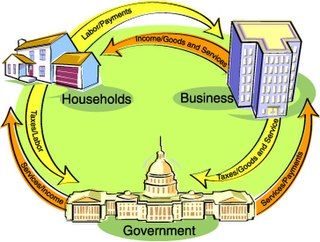 W
WBusiness cycles are intervals of expansion followed by recession in economic activity. They have implications for the welfare of the broad population as well as for private institutions. Typically business cycles are measured by applying a band pass filter to a broad economic indicator such as Real Gross Domestic Production. Here important problems may arise with a commonly used filter called the "ideal filter". For instance if a series is a purely random process without any cycle, an "ideal" filter, better called a block filter, a spurious cycle is produced as output. Fortunately methods such as [Harvey and Trimbur, 2003, Review of Economics and Statistics] have been designed so that the band pass filter may be adapted to the time series at hand.
 W
WA steady-state economy is an economy made up of a constant stock of physical wealth (capital) and a constant population size. In effect, such an economy does not grow in the course of time. The term usually refers to the national economy of a particular country, but it is also applicable to the economic system of a city, a region, or the entire world. Early in the history of economic thought, classical economist Adam Smith of the 18th century developed the concept of a stationary state of an economy: Smith believed that any national economy in the world would sooner or later settle in a final state of stationarity.
 W
WThe Coalition for Change was a presidential and parliamentary electoral coalition that groups the supporters of Sebastián Piñera for the 2009-10 Chilean presidential election. Its predecessor was the Alliance for Chile. The constituent parties are the Independent Democratic Union, National Renewal, ChileFirst, the movements Grand North, and Christian Humanism.
 W
WThe modern welfare state has been criticized on economic and moral grounds from all ends of the political spectrum. Many have argued that the provision of tax-funded services or transfer payments reduces the incentive for workers to seek employment, thereby reducing the need to work, reducing the rewards of work and exacerbating poverty. On the other hand, socialists typically criticize the welfare state as championed by social democrats as an attempt to legitimize and strengthen the capitalist economy system which conflicts with the socialist goal of replacing capitalism with a socialist economic system.
 W
WThe End of History and the Last Man (1992) is a book of political philosophy by American political scientist Francis Fukuyama which argues that with the ascendancy of Western liberal democracy—which occurred after the Cold War (1945–1991) and the dissolution of the Soviet Union (1991)—humanity has reached "not just ... the passing of a particular period of post-war history, but the end of history as such: That is, the end-point of mankind's ideological evolution and the universalization of Western liberal democracy as the final form of human government." For the book, which is an expansion of his essay, "The End of History?" (1989), Fukuyama draws upon the philosophies and ideologies of Georg Wilhelm Friedrich Hegel and Karl Marx, who define human history as a linear progression, from one socioeconomic epoch to another.
 W
WFame and Fortune Weekly: Stories of Boys Who Make Money (1905–1929) was an American periodical for children published by Frank Tousey in New York.
 W
WFinance capitalism or financial capitalism is the subordination of processes of production to the accumulation of money profits in a financial system.
 W
WGentlemanly capitalism is a theory of New Imperialism first put forward by the historians Peter J. Cain and A. G. Hopkins in the 1980s and developed in their 1993 work British Imperialism. The theory posits that British imperialism was driven by the business interests of the City of London and landed interests. It encourages a shift of emphasis, away from seeing provincial manufacturers and geopolitical strategy as important influences, and towards seeing the expansion of empire as emanating from London and the financial sector.
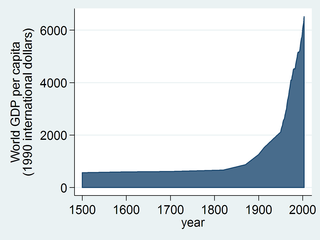 W
WGrowth imperative is a term in economic theory regarding a possible necessity of economic growth. On the micro level, it describes mechanisms that force firms or consumers (households) to increase revenues or consumption to not endanger their income. On the macro level, a political growth imperative exists if economic growth is necessary to avoid economic and social instability or to retain democratic legitimacy, so that other political goals such as climate change mitigation or a reduction of inequality are subordinated to growth policies.
 W
WHumanistic capitalism is a concept that seeks to unite humanism, specifically the safety and health needs of people and the environment, with market forces and a market-based economy.
 W
WIn Marxist theory and Marxian economics, the immiseration thesis, also referred to as emiseration thesis, is derived from Karl Marx's analysis of economic development in capitalism, implying that the nature of capitalist production stabilizes real wages, reducing wage growth relative to total value creation in the economy, leading to the increasing power of capital in society.
 W
WIn mainstream economic theories, the labour supply is the total hours that workers wish to work at a given real wage rate. It is frequently represented graphically by a labour supply curve, which shows hypothetical wage rates plotted vertically and the amount of labour that an individual or group of individuals is willing to supply at that wage rate plotted horizontally.
 W
WThe following is a list of industrial complexes.
 W
WA market economy is an economic system in which the decisions regarding investment, production and distribution are guided by the price signals created by the forces of supply and demand. The major characteristic of a market economy is the existence of factor markets that play a dominant role in the allocation of capital and the factors of production.
 W
WNarco-state is a political and economic term applied to countries where all legitimate institutions become penetrated by the power and wealth of the illegal drug trade. The term was first used to describe Bolivia following the 1980 coup of Luis García Meza which was seen to be primarily financed with the help of narcotics traffickers. Other well-known examples are Mexico, Colombia, and Guinea-Bissau, where drug cartels produce, ship and sell drugs such as cocaine and marijuana.
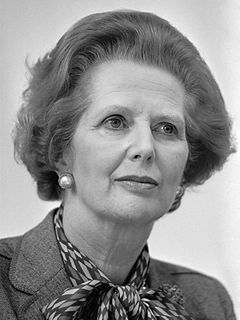 W
WNo Turning Back is a group within the British Conservative Party advocating Thatcherite policies. It was founded in 1985 to defend Margaret Thatcher's free-market reforms. The group was named in honour of Thatcher's 1980 Conservative conference quote "U-turn if you want to. The lady's not for turning." No Turning Back published less material in the nineties and became involved in Conservative party in-fighting, resulting in both Michael Portillo and Francis Maude leaving the group, but became more prominent during Iain Duncan Smith's time as Conservative leader because he had been a member until he was elected.
 W
WThe Nordic model comprises the economic and social policies as well as typical cultural practices common to the Nordic countries. This includes a comprehensive welfare state and multi-level collective bargaining based on the economic foundations of social corporatism, with a high percentage of the workforce unionized and a sizable percentage of the population employed by the public sector. Although it was developed in the 1930s under the leadership of social democrats, the Nordic model began to gain attention after World War II.
 W
WObjectivism is a philosophical system developed by Russian-American writer Ayn Rand. Rand first expressed Objectivism in her fiction, most notably The Fountainhead (1943) and Atlas Shrugged (1957), and later in non-fiction essays and books. Leonard Peikoff, a professional philosopher and Rand's designated intellectual heir, later gave it a more formal structure. Rand described Objectivism as "the concept of man as a heroic being, with his own happiness as the moral purpose of his life, with productive achievement as his noblest activity, and reason as his only absolute". Peikoff characterizes Objectivism as a "closed system" insofar as its "fundamental principles" were set out by Rand and are not subject to change. However, he stated that "new implications, applications and integrations can always be discovered".
 W
WThe Peterson–Žižek debate, officially titled Happiness: Capitalism vs. Marxism, was a debate between Canadian psychologist Jordan Peterson and Slovenian philosopher Slavoj Žižek on the relationship between Marxism, capitalism and happiness. It took place at Meridian Hall in Toronto on 19 April 2019 and was moderated by Stephen J. Blackwood.
 W
WPlan Verde was a clandestine military operation developed by the armed forces of Peru during the internal conflict in Peru; it involved the genocide of impoverished and indigenous Peruvians, the control or censorship of media in the nation and the establishment of a neoliberal economy controlled by a military junta in Peru. Initially drafted in October 1989 in preparations for a coup d'état to overthrow President Alan García, the operation was extended into the 1990 Peruvian general election and was reported to be subsequently executed under the government of newly elected president Alberto Fujimori following the 1992 Peruvian coup d'état. Shortly after the coup, Plan Verde was first leaked to the public by Peruvian magazine Oiga, with a small number of other media outlets also reporting access to the plan's documents.
 W
WRacial capitalism is a concept coined by Cedric J. Robinson in his book Black Marxism: The Making of the Black Radical Tradition, published in 1983. It describes the process of extracting social and economic value from a person of a different racial identity, typically a person of color. However, a person of any race might engage in racial capitalism, as might an institution dominated by one particular race. Furthermore, Robinson theorized that all capitalism was inherently racial capitalism, and racialism is present in all layers of capitalism's socioeconomic stratification. In fact, capital "can only accumulate by producing and moving through relations of severe inequality among human groups." Therefore, for capitalism to survive, it must exploit and prey upon the "unequal differentiation of human value."
 W
WRainbow capitalism is the incorporation of the LGBTQ+ movement, sexual diversity, and pinkwashing to capitalism, consumerism, gentrification, and the market economy, viewed especially in a critical lens as this incorporation pertains to the LGBTQ+, Western, white, and affluent, upper middle class communities and market.
 W
WRentier capitalism is a term currently used to describe the belief in economic practices of monopolization of access to any kind of property and gaining significant amounts of profit without contribution to society. The origins of the term are unclear; it is often said to be used in Marxism, yet the very combination of words rentier and capitalism were never used by Karl Marx himself.
 W
WThe Revolutions of 1989 formed part of a revolutionary wave in the late 1980s and early 1990s that resulted in the end of communist rule in Central and Eastern Europe and beyond. The period is often also called the Fall of Communism and sometimes the Fall of Nations or the Autumn of Nations, a play on the term Spring of Nations that is sometimes used to describe the Revolutions of 1848.
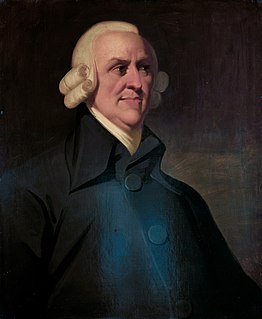 W
WAdam Smith was a Scottish economist, philosopher, pioneer of political economy, and a key figure during the Scottish Enlightenment. Also known as ''The Father of Economics'' or ''The Father of Capitalism,'' Smith wrote two classic works, The Theory of Moral Sentiments (1759) and An Inquiry into the Nature and Causes of the Wealth of Nations (1776). The latter, often abbreviated as The Wealth of Nations, is considered his magnum opus and the first modern work of economics. In his work, Adam Smith introduced his theory of absolute advantage.
 W
WState ownership, also called government ownership and public ownership, is the ownership of an industry, asset, or enterprise by the state or a public body representing a community as opposed to an individual or private party. Public ownership specifically refers to industries selling goods and services to consumers and differs from public goods and government services financed out of a government's general budget. Public ownership can take place at the national, regional, local, or municipal levels of government; or can refer to non-governmental public ownership vested in autonomous public enterprises. Public ownership is one of the three major forms of property ownership, differentiated from private, collective/cooperative, and common ownership.
 W
WThe theory of state monopoly capitalism was initially a Marxist thesis popularised after World War II. Lenin had claimed in 1916 that World War I had transformed laissez-faire capitalism into monopoly capitalism, but he did not publish any extensive theory about the topic. The term refers to an environment where the state intervenes in the economy to protect larger monopolistic or oligopolistic businesses from threats. As conceived by Lenin in his pamphlet of the same name the theory aims to describe the final historical stage of capitalism, of which he believed the Imperialism of that time to be the highest expression.
 W
WA stock market, equity market, or share market is the aggregation of buyers and sellers of stocks, which represent ownership claims on businesses; these may include securities listed on a public stock exchange, as well as stock that is only traded privately, such as shares of private companies which are sold to investors through equity crowdfunding platforms. Investment in the stock market is most often done via stockbrokerages and electronic trading platforms. Investment is usually made with an investment strategy in mind.
 W
W"There is no alternative" (TINA) was a slogan often used by the Conservative British prime minister Margaret Thatcher.
 W
WWage labour, usually referred to as paid work, paid employment, or paid labour, refers to the socioeconomic relationship between a worker and an employer in which the worker sells their labour power under a formal or informal employment contract. These transactions usually occur in a labour market where wages or salaries are market-determined.
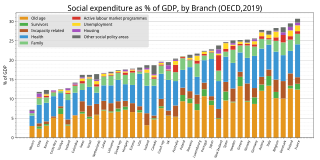 W
WThe welfare state is a form of government in which the state protects and promotes the economic and social well-being of its citizens, based upon the principles of equal opportunity, equitable distribution of wealth, and public responsibility for citizens unable to avail themselves of the minimal provisions for a good life. Sociologist T. H. Marshall described the modern welfare state as a distinctive combination of democracy, welfare, and capitalism.